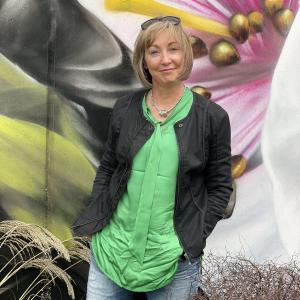
Devon Koller, Bachelor of Speech and Language Therapy
Coaching and Counselling are an integral part of being a Speech Language Therapist.
Throughout my 30 years in this profession, I think I have always thought of my role a bit differently than the majority. I have always pushed the status quo of my title; looking beyond ‘speech and language’ to the bigger picture of brain wiring and function, how we process information and how our executive functioning skills impact the way we communicate and operate. I have always searched outside the box to find approaches that understand and strengthen cognitive differences and that would provide practical, hands-on ways to help the clients I was seeing. This means going beyond the (diagnostic) label, understanding and finding connections between brain wiring and what we see.
Communication and language sit at the foundation of everything we do. From early attachment, to our learning and academic achievement, speech and language development, our relationships with others, our ability to recognise and regulate our emotional states, and being able to engage in work and leisure activities.
Within my role I can:
Help people learn about and adjust to a neurodivergent brain and cope with the feelings, thoughts, and behaviours they may have.
Help people increase their autonomy and confidence to advocate for any learning or work support needs.
Help people to improve their own and others understanding of how to reduce barriers, enhance participation, and facilitate successful life participation.
Help people develop of coping mechanisms, problem-solving skills, compensatory behaviours, and systems for emotional support, including parent coaching.
I have always immersed myself in new learning and love what social media platforms have done for professional development. I have dedicated all of my career to neurodivergence and trauma.
Coaching:
I have lived experience and understand the challenges first hand of being Neurodivergent in a neuro normative world. Each person’s experience is unique, and it is essential that it is acknowledged and accepted. My ADHD diagnosis last year, at age 53 was the beginning of my own understanding, processing, healing. Having an explanation for who and how I am, has been a relief, but it’s tough too looking back on missed opportunities and the myriad of mistakes along the way!! The coaching role is about helping you identify what is working and what’s not. It’s about the growth, learning and the self-discovery that occurs. It’s about helping you move from overwhelm to build and sustain autonomy and self-advocate with greater confidence.
I am a learning and communication specialist in neurodivergence and trauma. My training also allows me to work in a counselling role. How our ADHD shows up is often deeply rooted in our past. Sometimes we need to look back to move forward.
